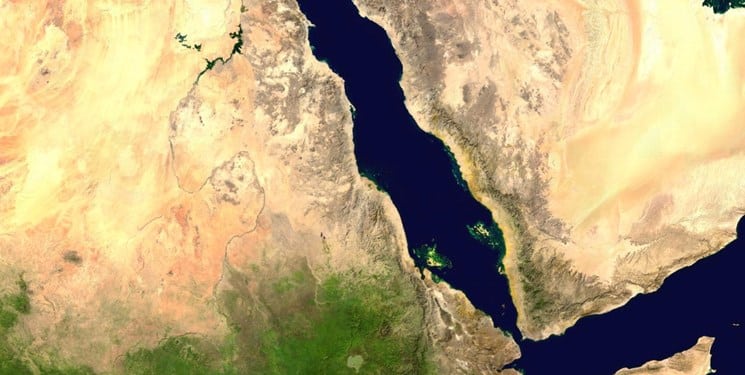No Arabic has informed the Western-Hebrew/American alliance about the creation of an anti-Yemen bloc, among the countries in the region, only Bahrain is present in it.
The absence of the Arab countries of the region such as Saudi Arabia, the UAE, Egypt, etc., which have always accompanied the policies of the White House, is questionable in the American coalition and indicates the failure of the United States to bring them along.
Insha Allah, preventing ships from moving towards occupied Palestine has brought the matter to the point where Tel Aviv officials have reached out to America and demanded military action against the Yemenis. The Yankees, who during the last seventy-four days of the war, did not stop washing blood from the crimes of the occupiers, welcomed this proposal and entered the field in support of their ally. In this direction, US Defense Secretary Lloyd Austin, during a joint press conference with Israeli Prime Minister Benjamin Netanyahu, officially announced the formation of a multinational coalition “Operation Welfare Guardian” for what he called the threat posed by the Yemeni army in the Red Sea. In addition to America, England, France, Italy, Spain, Norway, Netherlands, Canada, Bahrain, and Seychelles are present in this coalition.
Half-term coalition
Of course, the international coalition against Ansarullah has been formed for years. When the war in Yemen started in 2015, it was clear that one side of the war is the people who were seeking independence, and the other side is the broad international coalition led by the United States. The American-Israeli-Arab triangle, which failed to bring the Yemeni resistance to its knees during the 8-year war, is now trying to dissuade Ansarullah from continuing to support the Palestinian people by launching this propaganda show. A goal that seems very unlikely.
The current carelessness of the United States will have consequences and will make the region pregnant with new events. There are several points to be mentioned about the decision to create the alleged American naval coalition against Ansarullah. The first is the cold reception of the Arab countries to the Western-Hebrew alliance. Taking a quick look at the ten member countries of the coalition, the only Arab country whose participation in this initiative has been officially confirmed is Bahrain. This small Arabian sheikhdom is the size of the US Fifth Fleet as the US military’s largest naval base. This is despite the absence of other Arab countries in the region, such as Saudi Arabia, the United Arab Emirates, Egypt, etc., which have always been associated with the policies of the White House, apart from Manama, which was forced to accept such a partnership due to pressure from Washington and London. It is questionable and it tells about America’s failure to take them with them.
Differences between allies
The second point, which can be mentioned in the continuation of the first point, the formation of the minimal naval coalition clearly shows the existence of differences between the United States and the Arab allies, as well as the division between the Sheikhs themselves. Meanwhile, the absence of Riyadh, Abu Dhabi and Cairo is more interesting than others. Washington even resorted to threats to bring Saudi Arabia and the UAE with them and used the reduction of military cooperation as a lever to force them to join the anti-Yemen coalition. However, according to reports, the UAE and Saudi Arabia have refused to partner with the United States due to the devastating consequences of this alliance. The American news agency Bloomberg has mentioned a part of this difference between the allies of the United States on the type of confrontation with Ansarullah. According to the report of this media, the action against the Yemenis in the Red Sea has been hindered due to the differences between the Arab countries and the United States, because the positions of Saudi Arabia are not aligned with the United States. According to this source, while the UAE wants military action against the Yemenis, Saudi Arabia wants a moderate solution and is afraid that any war will provoke the Yemenis and end the ceasefire. At the same time, the Associated Press news agency, citing an informed source in Washington, claimed that several Arab countries agreed to join this security initiative, but did not want their names to be officially revealed; An issue that highlights the duplicity of some Arab countries in facing the issue of Yemen and Palestine.

